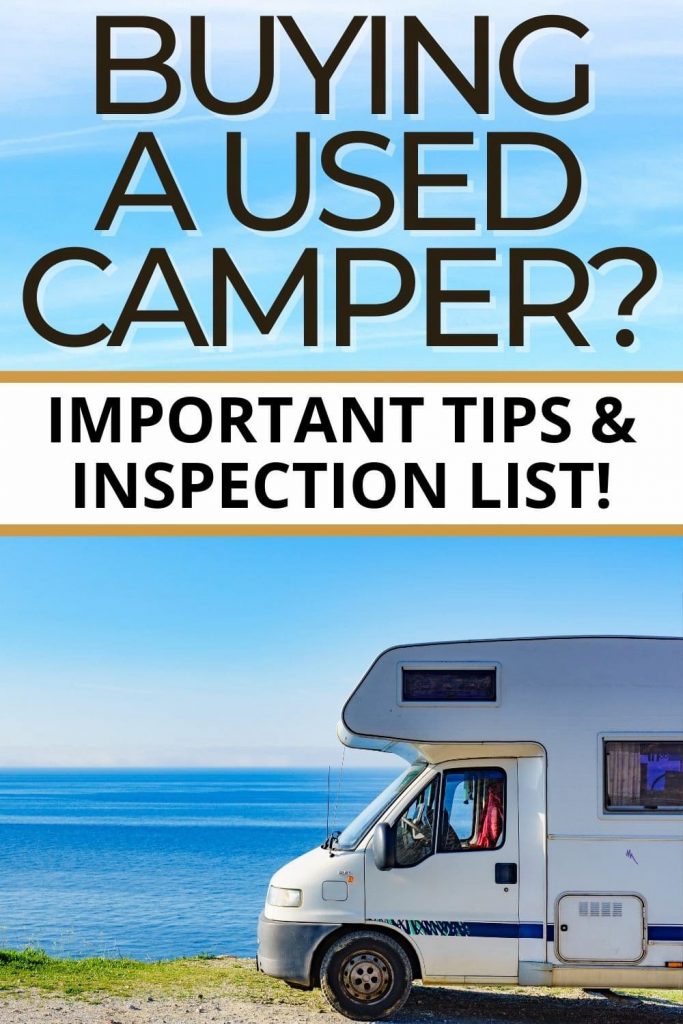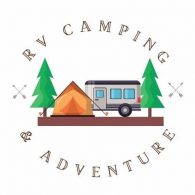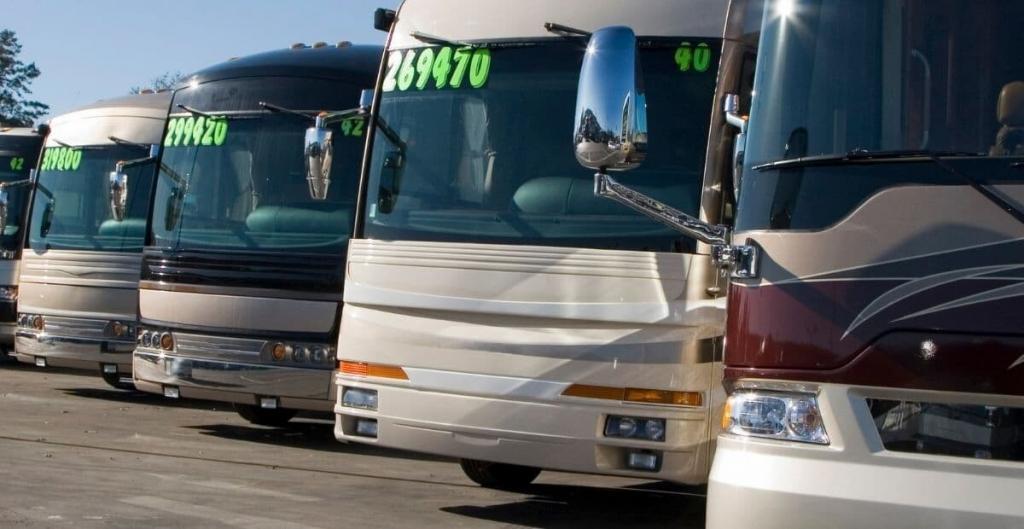Thinking of buying a used RV? If you know what to look for (and what to avoid!) you can find a great deal and have years of fun and outdoor adventure. Let me share some of the knowledge that we have gained after buying and selling a few used campers of our own. Hopefully, this info will help you find the perfect RV and avoid some of the lessons we have had to learn the hard way!
Ready to see if buying a used RV is right for you? Let’s jump into it!
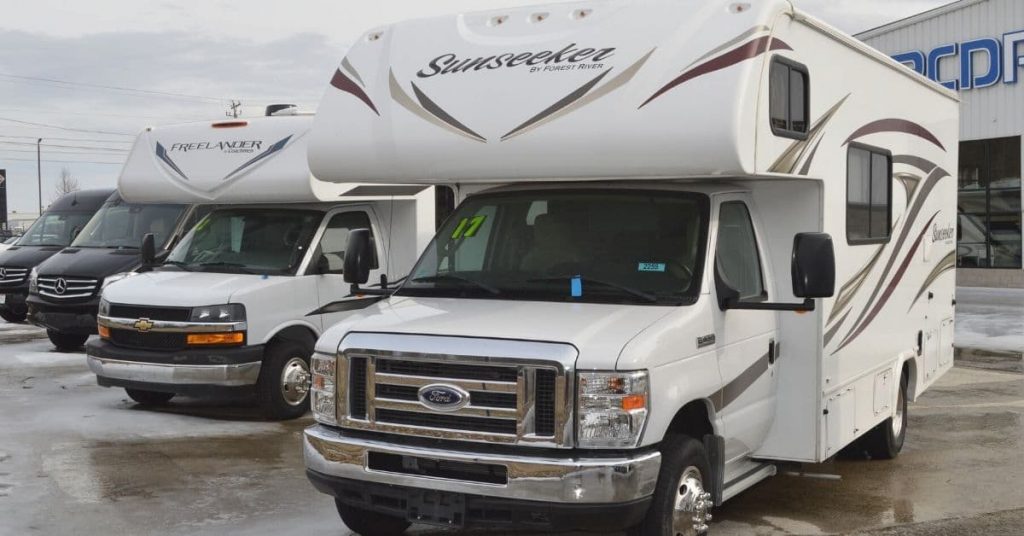
This post may contain affiliate links, which means I’ll receive a commission if you purchase through my links, at no extra cost to you. Please read full disclosure for more information.
Camping Life: How To Get Started
With the summer months fast approaching, more and more people are looking at the different ways that they could enjoy a little time away.
Camping in nature is a great summertime experience but what happens when you have had enough of putting up a tent, praying that the weather stays fine, and considering how you will dry your canvas out when you return home because of the rain that falls just as you are packing up.
The answer is simple… Upgrade to an RV.
Well, I say that this is simple, but if anyone has ever looked into buying an RV or travel trailer you will quickly realize that there are many decisions you need to make.
First, and perhaps most importantly, you need to decide what type of RV you need.
Do you want a motor home, campervan, a fifth-wheel, a popup camper, or a truck camper? You may also want to consider a van or a converted vehicle.
Regardless of the style of vehicle, however, there are other important considerations when buying a camper or RV and before you start your camping life so you can find the best option for you at a great price.
Tips and Advice for Buying an RV
Before you even start to look for an RV online or step on a dealer’s lot (regardless of whether you choose a new or used RV) you need to consider the following questions:
- What is my budget? How much am I willing to spend on the vehicle itself and what is my spending limit for any work that may need to be carried out afterwards?
- Are you looking for a brand new or used RV? Remember to weigh up the pros and cons for each.
- What size vehicle do I want and need? Is it for a family? Will you be inviting others to join you on your trips? Research the different camper models, the average prices and also read some reviews on the models that appeal to you. What, if any, are the common problems, the pros and cons for each type, make and model you like the look of?
- How old do you want your vehicle to be? Do you want an almost new unit, or would you consider older RVs?
- What work are you prepared to do on it? Do you have the skill set required for the work needed? Do you need to put aside a separate budget for this work?
- Can I afford the monthly running costs? Tax and insurance? Fuel? Emergency work if it breaks down?
We can all dream but it’s important to be realistic about your financial situation and decide on your budget before you start shopping.
Establishing a budget ahead of starting a search is vital! Finding a good deal is great, but you have to be able to actually afford the purchase if you don’t want to end up with buyer’s remorse.
So, once you have answers to each of the questions above, you can start to look for recreational vehicles either through private party sellers or an RV dealer.
* Quick tip- if you find a used camper that you’re interested in, it’s a good idea to look up the value (you can use online NADA guides) before calling or stopping to ask about it. That way you have some idea of what a fair price might be and can be sure that if you make an offer you will be getting the best deal.

Should You Buy a New or Used RV?
Regardless of whether you opt for a brand new camper or a pre-loved one, there will be advantages and disadvantages to each option. Let’s go over things to consider when looking at new RVs.
The Pros and Cons of Buying a Brand New RV
The Pros
- You get to customize your choices. You can decide what additional fixtures and fittings you want, what tech you want inside, and what the color of the soft furnishings will be
- It will have low mileage
- There should be no major problems or maintenance issues
- They come with a decent warranty or even an extended warranty, meaning if you have any issues within the time period the work will be completed without additional cost
- It has that brand new smell about it. (Which is actually not very good for your health, but here are a few great tips that can help improve indoor air quality!)
- You could have the option to purchase and finance should you want to consider this
The Cons
- A new rig will depreciate in value quicker in the first few years
- Just because it is new, does not mean that there will not be faults (although a warranty should cover these issues)
- You will need a larger budget since new RV’s have a higher purchase price than used units
- They can come with higher insurance costs
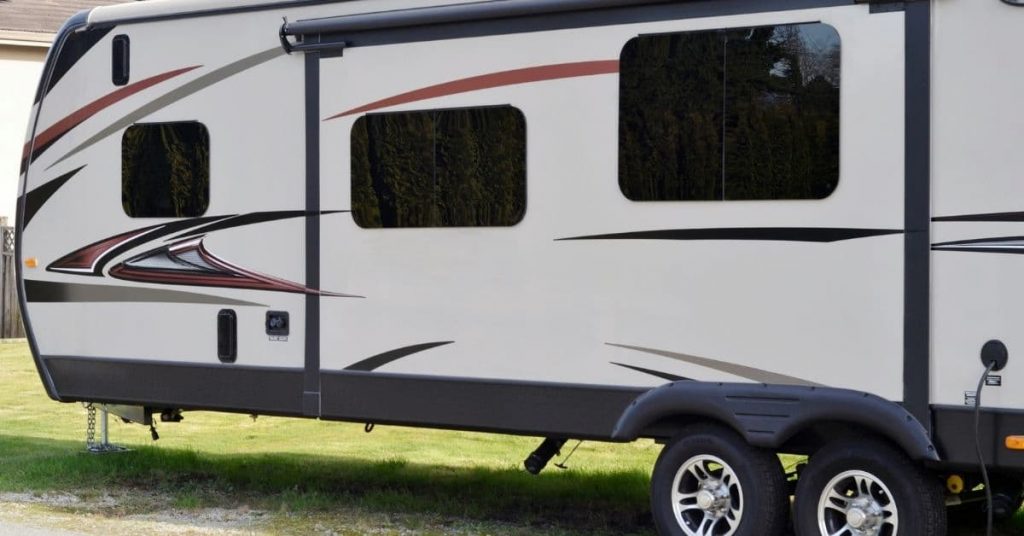
The Pros and Cons of Buying A Used RV
The Pros
- Lower price range (typically, unless you buy a vintage or classic)
- Can have lower insurance costs
- Less depreciation
- Issues that normally come with a new vehicle have hopefully been worked out
- Option for private sale and extended warranties from third parties
The Cons
- It has obviously had previous owners so you lose the brand new smell (and it will probably show some wear)
- The décor may not be to your liking
- There is a higher potential for major issues that may not be noticed on the first inspection (especially hidden problems like brown spots that have been painted over, soft spots in floors that are larger than they appear, and dry rot in exterior walls that has been covered over. Ask me how I know….)
- You may find that there is a limited selection of the make and model you really want
Some people are always going to prefer a brand new purchase over a used one, but it is important to remember that there will be pitfalls with both.
Regardless, of which one you choose, there will be compromises to make and it’s important to weigh those up before jumping in, even if it seems like a really good deal at the time.
The last thing you want to do is pay out thousands of dollars for something you very quickly fall out of love with.
If, however, you do decide that buying a used recreational vehicle is right for you, there are certain things you should be checking before you buy.
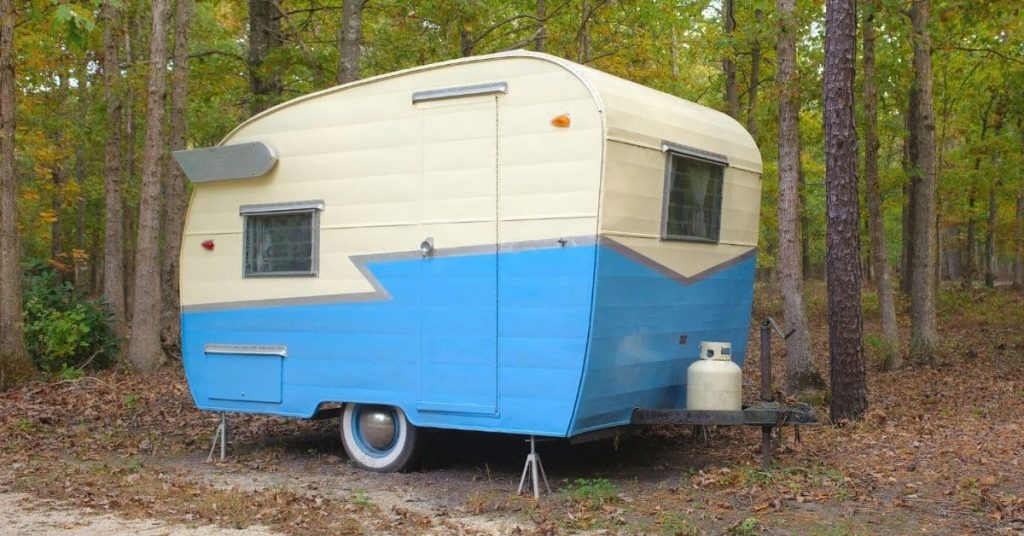
What To Look For When Shopping For A Used RV
Once you have found your perfect RV there are certain things you need to check before going ahead with the sale. Here is a quick inspection checklist and tips to get you started!
1. Check The Registration
Before anything else check the registration documents to confirm the person selling is legally allowed to and that no modifications have been made that may make it un-roadworthy. (This is especially important if you are looking at campers for sale by a private seller, if they cannot provide appropriate documentation this is a huge red flag!).
2. Look At The Service History
Even if the previous owner seemed to keep the RV in good condition, check for detailed service history and make sure to find out if there are any continual problems, major repairs, water damage, or important things that need to be fixed.
3. Ask About Owner History
How many people have owned this RV, and how often have they driven it? Has it been used for short camping trips or has someone lived in it? What is their reason for selling? Talk to previous owners if possible to find out more about the camper.
Has it been sitting around for a long time? If no one has used it for a longer period chances are they haven’t done any maintenance work on it, so are there new problems to consider?
4. Inspect Locks And Security
Check for any additional security measures. Is the lock standard? Is there a security system? If so, great! If not, it’s not a deal-breaker but something to be considered because standard RV locks are easy to open.
5. Check Tire Condition
Check the treads on each tire. How old are they? How many miles have they done? Do they look worn or damaged in any way? Are they the right size for the vehicle and are they all matching? You need to consider the maximum weight you can fill the RV up to and whether the tire will comply with all safety regulations for that.
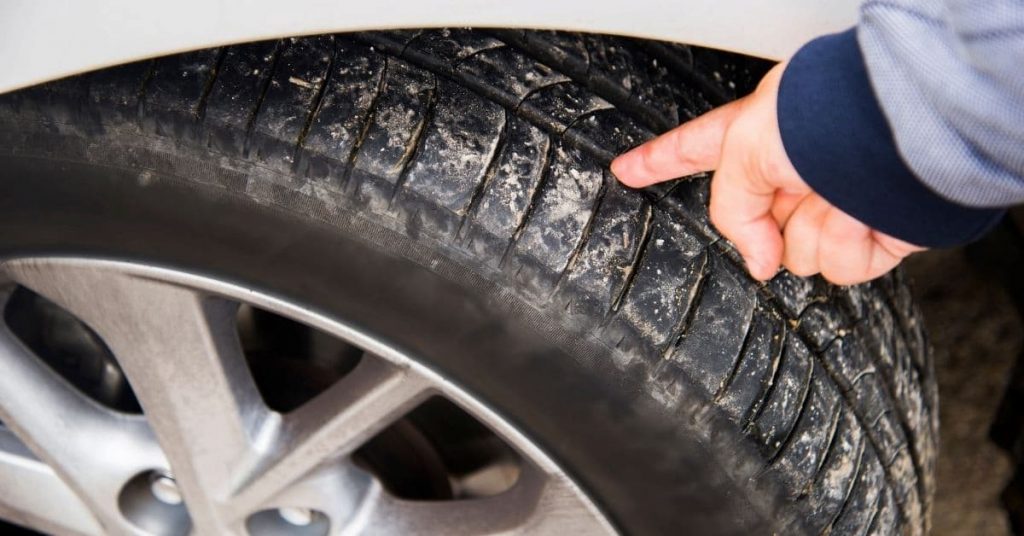
6. Look For Water Damage
Check everywhere for water damage. Are there any soft spots on the floor, on the ceiling, or on the walls? Are the walls wrinkled or bubbled? Look into the cabinets and under the sink and confirm that there is no mold growing.
Have the cupboards expanded because of a water leak? Inspect the mattress and all soft furnishings, turning them upside down to check for dampness or any stains.
-Check the seals of each window and the RV roof to confirm that there is no way any water can get in.
-Are there any strange smells or discoloration?
Take time to explore the toilet area to make sure that there are no water leaks there.
7. Check All Equipment And Systems
Ask the current owner or RV dealership if the camper can be hooked up to water and electricity so you can check all the systems including the electrical systems, battery bank for solar panels (if that’s available) plumbing, and see if there are maintenance records available.
You will also want to….
-Check the operation of all gas equipment, and ask if it has ever been tested.
-Press all the buttons. Turn on the engine. Turn on every single light both inside and outside.
-Turn on the hot water heater and try the water pump. Make sure all the faucets work and that there is no dripping.
-See if the air conditioner and furnace work.
-Stand in the shower if it has one. If the shower is too small or you feel uncomfortable then you will never use it, which if you are planning to go off-grid then this is not ideal.
-Turn on the water and see if you notice any strange smells. If so, it could be that the fresh water tanks need to be sanitized. Not a deal-breaker, but definitely important!!
8. Check Inside And Outside
-Check underneath the vehicle for damage and rust. Of course, wear and tear does happen but take a closer look and see if it is just cosmetic or something more sinister and how much it may cost to repair if necessary.
-Ask if any animals have lived in the RV and for how long. While pets are the perfect travel companions this can lead to smells appearing over time. Likewise, if they are smokers this puts many people off.
-Can you see any evidence of mice? This is common in RVs that are parked for the winter but it could mean that there are chewed wires, wallboard, or nests where you can’t see them.
9. Take It For A Ride
Ask for a test drive. Never ever buy something like this without taking it for a spin first.
It is the only way to truly learn if there is a problem with it or whether you feel comfortable behind the wheel.
- Does it feel too big?
- How does it handle at speed?
- What are the brakes like?
- Does anything rattle that shouldn’t be?
10. Additional Considerations
-Look to see if the toilet has a straight pipe to the holding tank or if it’s got a bend. (You wouldn’t believe how easy toilets can get clogged! We know this one from personal experience).
-Does the camper have a ladder attached for easy access to the roof? (Again, this turns out to be more important than you realize. Just ask my husband who once had to climb a tree at a campground to get on our roof because we had no ladder available!)
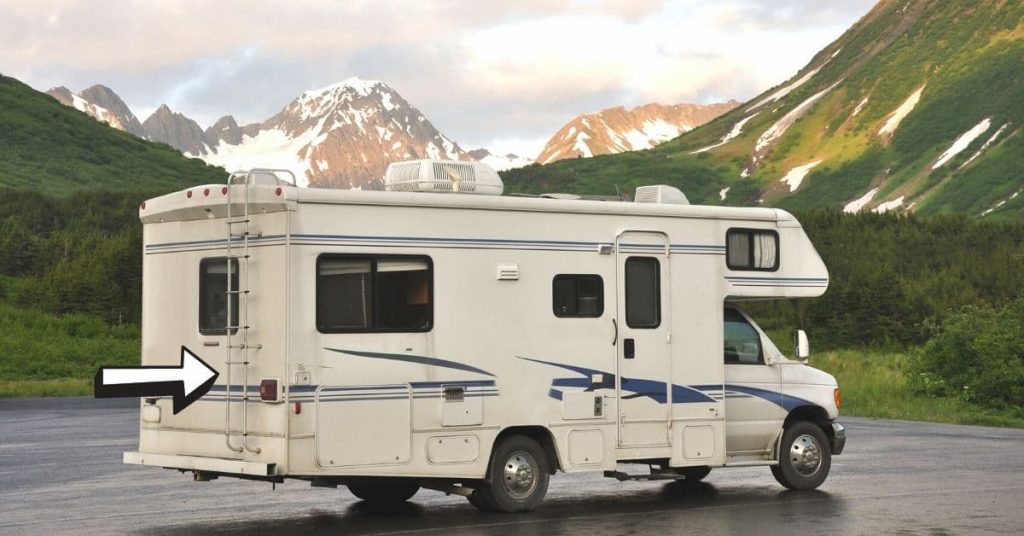
I will say, the last two tips are not absolute necessities, but they are definitely issues to keep in mind! When we buy our next RV, having a toilet with less chance of clogging and an attached ladder will absolutely be on our must-have list.
Other Considerations When Buying A Used RV
Another consideration to keep in mind is:
- Where you are likely to be taking this vehicle?
- Are you planning to stay mostly in campgrounds, boondock in your RV, or rough it in the woods?
- Can you comfortably park your camper in a camping spot?
- Do you have the correct license to drive it?
And finally, if you are buying a used RV that is on the newer side, don’t forget to ask whether the warranty can be extended.
This could seriously cut down the cost of repairs and ultimately save you money.
A Few Last Thoughts….
Buying a used RV is a big decision and one that should not be spur-of-the-moment.
It takes time to research and inspect them in order to find the right one. Don’t rush it; make sure that the vehicle you choose ticks as many boxes as possible.
There will of course be compromises to make, but if you notice any red flags or the cons start to outweigh the pros, you have to ask yourself whether this is the RV for you.
And if it’s not, feel free to move on and keep looking.
Your (almost) perfect camper is out there somewhere. So get out there, be a savvy shopper, and don’t give up!
Related Articles
- How To Quickly & Easily Sanitize An RV Water Tank
- RV Wallpaper: Perfect For Easy Camper Renovation
- How To Keep Mice Out Of Your Camper: Easy Steps & Helpful Tips!
- 12 Must-Have Tips To Increase RV Security
- Learn Everything You Need To Know About RV Antifreeze (Before Winter!)
- 5 Best Composting Toilets For An RV (+Pros And Cons, Tips, Benefits!)
- 8 Best Portable Camping Cabinets And Storage Options For 2022
